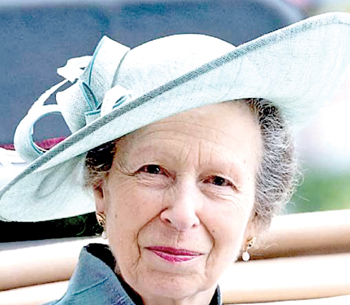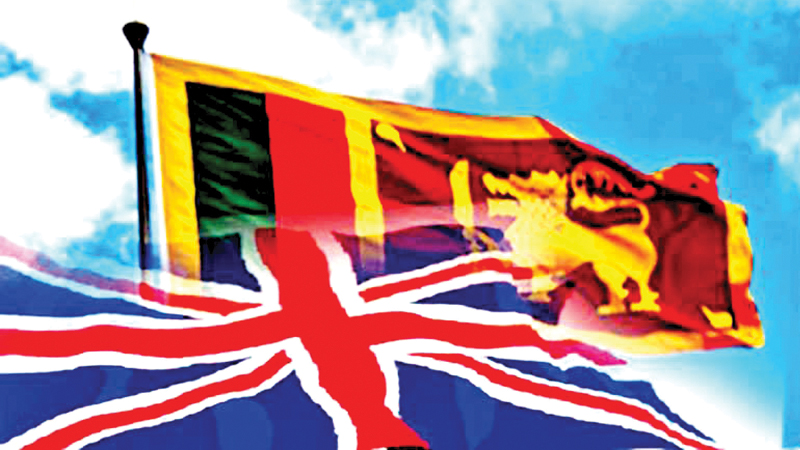Princess Anne’s visit to Sri Lanka to mark the 75th anniversary of diplomatic relations between Sri Lanka and the United Kingdom is unique as this is the first occasion that the Princess participated in a Royal tour after the demise of her mother Queen Elizabeth in 2022 and the coronation of her brother Charles II last year.
Besides this speciality, Princess Anne’s visit symbolises Britain’s nostalgia to perpetuate her glorious past, in which Britain used to rule the waves as a superpower. When the term Super Power was coined by American theoretician William T. R. Fox in 1944, his analysis referred to the British Empire as a global superpower in the 19th century, whose ability to control international affairs was at its peak.
 The 19th century truly belonged the Britain as British power was formidably established around the globe by vanquishing all her rivals, which culminated in defeating the French in the Napoleonic wars. The system the British introduced to her colonies was conspicuously different from the first European colonial powers such as Portuguese and Spanish.
The 19th century truly belonged the Britain as British power was formidably established around the globe by vanquishing all her rivals, which culminated in defeating the French in the Napoleonic wars. The system the British introduced to her colonies was conspicuously different from the first European colonial powers such as Portuguese and Spanish.
Indeed, the British were a nation of shopkeepers who paid less attention to imposing their religion or language in the colonies they administered. The rule of thumb that the British embraced in their colonial expansion reflected the 19th-century British triumph of liberal democracy, which advocated for wealth accumulation devoid of religion.
British policy
In particular, British policy towards Sri Lanka appeared to be sui generis from the beginning. In Lord Curzon’s axiomatic stance in the Indian subcontinent, Curzon gazed at all the territories under British yoke in South-East Asia as parts of the British Raj of India. But this division had excluded Sri Lanka as an integral part of the British Raj in India depicting the different status that the bureaucrats in London towards Sri Lanka.
The idea of representative democracy through the legislative mechanism was planted by the Colebrooke Commission in 1833. These reforms conceived the roots of the constitutional struggle among the native leaders that later on developed into a nationalist movement, which took a different bent from India.
It may be a riddle in history to fathom what impetus shaped the British attitude in transforming the political destiny of this island. From a vantage point, they took the institutions they implanted in Sri Lanka such as the franchise, state council and territorial representation as apt examples of a model colony. Besides the white-dominated colonies such as Canada, New Zealand and Australia, the British often regarded Sri Lanka to be a fine example of their colonial administration.
When the British departed Sri Lanka in 1948, the successive government that came into power under D.S Senanayake’s premiership stood for the ideals that the British established on the island. Some of the caustic writers in South Asia scorned the nature of the D.S. Senanayake and United National Party as British loyalists based on external observation.
But, realistically the stances held by premier Senanayake were a timely one as an infancy nation. D.S. Senanayake’s choice of sending Sir Oliver Goonetilleke as Ceylon’s ambassador to the St.James’ Court was emblematic in deciding the rigour of British -Ceylon relations. Beyond his tail hat and knack for turf race, Sir Oliver was truly a diplomat who carved the first phase of British -Ceylon relations favourably.
D.S. Senanayake had a paranoia towards both the Communist expansion and India. Indian factor was a mere storm in the teacup, But, Senanayake adamantly believed in forming a defence alliance with the British to protect Sri Lanka from any possible Indian attempt to annex the island.
The British-Ceylon defence pact marked a crucial juncture in the first two decades of the diplomatic relations between the two countries. It intended to stand in favour of the mutual interest. This development represented Senanayake’s worst fears since, in his view, it left Ceylon exposed to an Indian invasion. He thus demanded the Royal Navy maintain a visible presence at Trincomalee. Colombo also insisted Katunayake be strengthened since most RAF aircraft had recently been transferred to Hong Kong and Malaya where the communist threat was deemed more imminent.
Modern importance
The relations between the United Kingdom and Sri Lanka after the ethnic conflict began in 1983 became volatile due to the role of Tamil diaspora influence in British politics. In particular, the opposition shown by Britain, along with other European states against the military efforts of the Government in crushing LTTE terrorism was evident by the visit of then British foreign secretary David Miliband to Sri Lanka in 2009.
Modern Britain is not, an imperial power imbued with a vast array of global influence and the remaining relics of the British empire is confined to the Commonwealth. Multiculturalism, globalisation and radical tendencies in domestic politics with the other assimilations have completely altered the face of Britain as a cosmopolitan state. No. 10 Downing Street, the residence of the British Premier once occupied by ultra-nationalist Englishmen such as Winston Churchill is now owned by a Hindu premier showing the changing nature of British politics.
Given these global currents encompassing Britain, Sri Lanka’s relations with the UK are important to both countries in multiple ways. For Sri Lanka, it is more than a colonial nostalgia as the United Kingdom remains one of the biggest trade partners and one of the prime purchasers of Sri Lankan exports. The tourism industry in Sri Lanka has been largely prospered by the arrival of British tourists, which covers approximately 15 percent of overall tourist arrivals. For the United Kingdom, Sri Lanka’s goodwill matters due to the island nation’s strategic importance in the Indian Ocean region, where the United Kingdom plays a pivotal role in collective security pacts such as AUKUS and Quod.
A jingoistic critic examining the British period in Sri Lankan history may vociferate that strengthening the relations with the United Kingdom by hosting British Royalty is a meek act, which indicates our cowardly loyalty to a former colonial power.
Nonetheless, the visit of Princess Anne and celebrating the diplomatic relations between the two states should consolidate its objectives rather than a mere nostalgia as a collaboration between two sovereign equals in a century, in which the future awaits Asia as the epicenter.
The writer is a lecturer at the Faculty of Law, General Sir John Kotelawala Defence University









